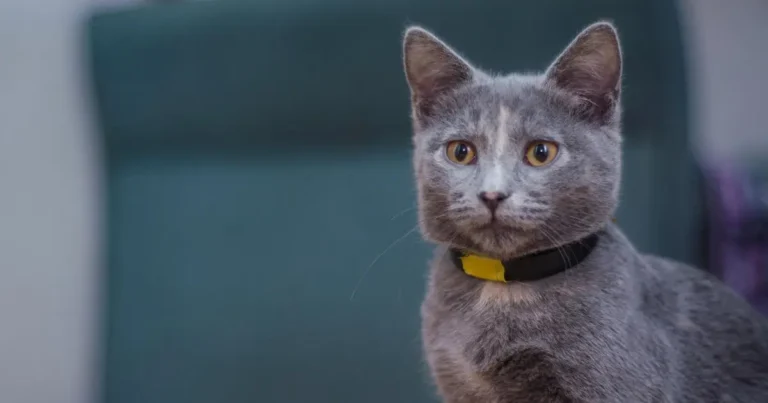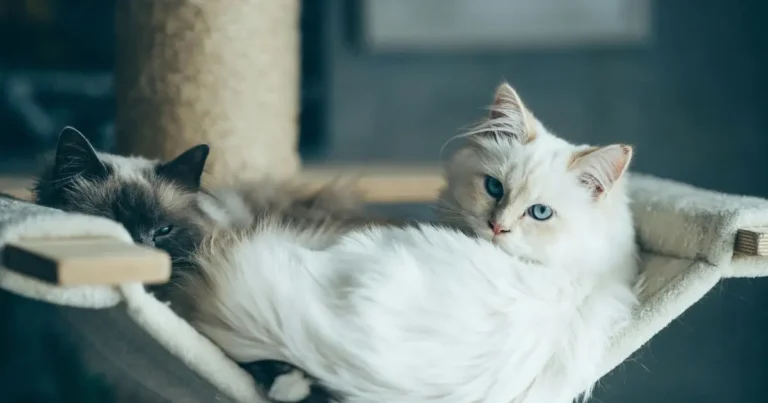Welcome to Loki & Nala Family
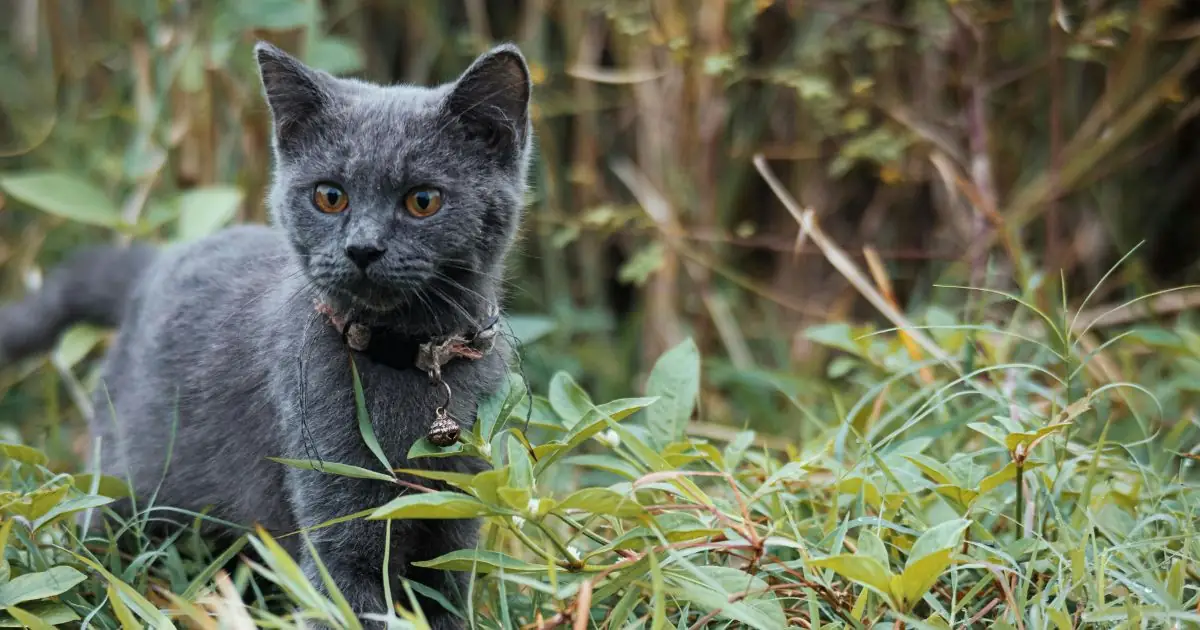
Table of Contents
Welcome to your guide on the Russian Blue kitten. This breed is famous for its beautiful silver-blue coat and bright green eyes. They are also known for being very affectionate and gentle.
As you learn more about the Russian Blue cat, you’ll see why they make great companions. They fit well into many families and homes.
If you’re thinking of getting a new pet or want to know more about them, it’s key to understand their needs. You might be curious about the cost of a Russian Blue cat or where to find kittens for adoption. This guide will help you give your Russian Blue kitten the best home possible.
Introduction to Russian Blue Kittens
The Russian Blue kitten has a long history, dating back to the 19th century in Russia. This breed is loved for its beautiful looks and intelligent, loving nature. Each Russian Blue cat has a stunning silvery-blue coat and bright green eyes, making them truly elegant.
Getting to know Russian Blue kittens means learning about their social side. They are gentle and shy but very loyal to their people. This makes them great pets for families or anyone looking for a loyal friend.
Thinking about getting a Russian Blue kitten? It’s important to know they love to interact. They can be playful or quiet, depending on their mood. Playing with them and setting routines helps them feel at ease, showing off their intelligence and curiosity.
Their Russian roots shape their unique personality. Initially, they were companions for Russian aristocrats. This history adds to their refined nature, making them unique pets.
| Characteristic | Description |
| Coat Color | Silvery-blue, dense, and plush |
| Eye Color | Vibrant green, bright and striking |
| Temperament | Intelligent, gentle, and affectionate |
| Origin | 19th century Russia |
| Activity Level | Moderate, enjoys playtime and interaction |
Understanding the Russian Blue Cat Breed

The Russian Blue cat is known for its beauty and loving nature. It comes from Russia, where it was seen as lucky. Its coat is a beautiful blue-gray, thanks to its double fur layer.
Their coat is soft and short, and their eyes are bright emerald green. These traits make them very special to cat lovers.
Russian Blues have a unique mix of personality and looks. They are playful but gentle, making them perfect for families or singles. They bond strongly with their owners, showing loyalty and love.
They are curious and love to explore, but they also enjoy quiet time with their owners. This makes them great companions.
Health-wise, Russian Blues can live up to 20 years with the proper care. It’s important to watch their health, as they can have genetic issues. Regular vet visits and a healthy diet help keep them well.
| Trait | Description |
| Coat Color | Distinctive blue-gray color that gives a silvery sheen |
| Eye Color | Bright emerald green, a hallmark of the breed |
| Temperament | Affectionate, playful, and intelligent |
| Average Lifespan | 15 to 20 years with proper care |
| Health Considerations | May be prone to genetic conditions; regular vet check-ups required |
Characteristics of a Russian Blue Kitten
Learning about a Russian Blue kitten’s unique traits helps you know what to expect. These kittens are not only cute but also have unique physical and behavioral features.
First, let’s talk about their physical characteristics. Russian Blue kittens have a soft, dense coat in a beautiful bluish-gray color. Their bright green eyes are a standout feature. They also have a muscular build with elegant proportions, making them both playful and graceful.
Now, let’s look at their behavioral traits. Russian Blue kittens are playful and curious. They are brilliant, making them quick to learn and fun to be around. They love to play, which keeps their minds active and their bodies moving.
- Playfulness: Enjoys games and toys.
- Curiosity: Explores their environment with enthusiasm.
- Social: Forms deep bonds with their owners.
- Affectionate: Seeks companionship and loves attention.
Socialization is key to their growth. Russian Blue kittens love to bond with their humans. They do best in loving homes where they get lots of attention and affection.
| Characteristic | Description |
| Coat | Soft, dense, bluish-gray with a striking sheen |
| Eye Color | Vibrant green, a standout feature |
| Energy Level | High; enjoys play and exploration |
| Affection Level | Loves to bond with owners, often seeks attention |
Affection Level Loves to bond with owners, often seeks attention
Knowing these traits helps you build a strong bond with your Russian Blue kitten. By observing their behavior and meeting their needs, you can make them happy and ensure a fulfilling relationship.
How to Choose the Right Russian Blue Kitten
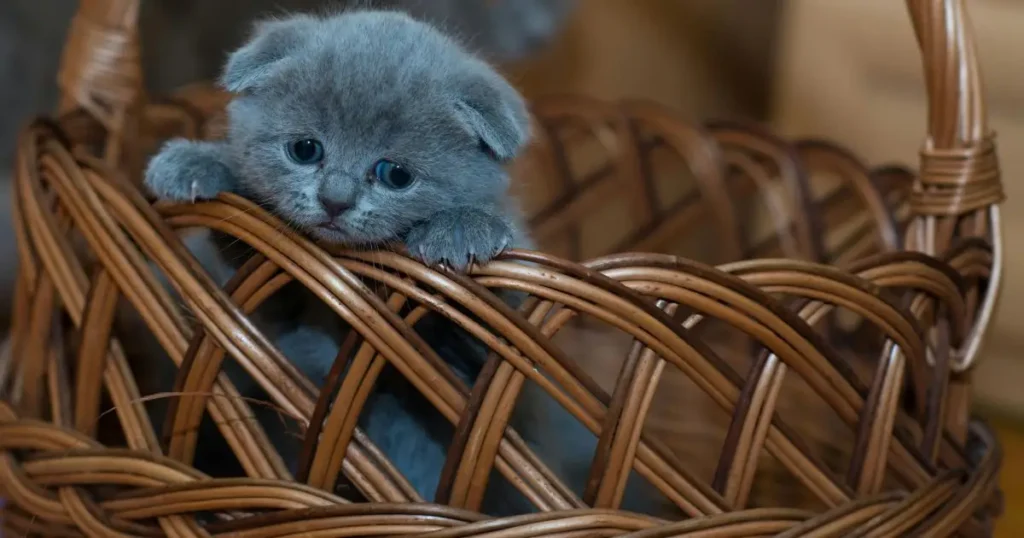
Choosing a Russian Blue kitten is a big decision. You want a kitten that fits your lifestyle and is healthy and social. Here are some tips to help you pick the perfect kitten for your home.
First, think about the kitten’s age. Russian Blue kittens should be at least eight weeks old. This lets them learn necessary social skills. Look for kittens that are well-groomed and have clear eyes and clean ears, showing they are healthy.
Next, check the kitten’s coat color. Russian Blues are known for their silvery-blue fur, but colors can vary. Knowing the breed standard helps you spot the right colors. Also, personality matters a lot. Watch how the kittens play and interact; the curious ones usually fit in well at home.
Look at where the kittens live to learn about their health and mood. A clean, ample space shows the breeder or shelter cares. Ask about the kittens’ health and any shots they’ve had. This is important for your peace of mind.
Finally, think about getting your kitten from a good breeder or shelter. Good breeders care about their animals, and shelters help kittens in need. Choosing wisely means a happy life with your new pet.
Factors to Consider Importance
| Factors to Consider | Importance |
| Age | Should be at least 8 weeks for proper socialization |
| Health Checks | Essential for preventing future health issues |
| Color Variations | Understanding breed standards ensures authenticity |
| Personality | Adaptability and temperament affect your home life |
| Living Conditions | A clean environment indicates responsible care |
| Breeder/Shelter Reputation | Critical for ethical and healthy choices |
Russian Blue Kittens for Adoption
Adopting a Russian Blue cat can bring joy and companionship into your life. Many people choose to buy from breeders instead of adopting. But adopting a kitten saves a life and helps reduce homelessness.
Animal shelters and rescue groups have many cats, including Russian Blues. These places are safe havens for animals. They let you find a new friend while doing good. Look for reputable rescues and local shelters to find a healthy kitten.
- Check for vaccinations and health checks from the shelter.
- Evaluate the adoption fee, which often covers initial veterinary care.
- Inquire about the kitten’s behavior and any known history.
- Meet with potential pets to assess compatibility with your family.
Adopting a Russian Blue cat creates a loving home for an animal. While breeders offer specific traits, the joy of adoption is greater. Your new feline friend might be waiting in a shelter, ready to bring happiness and warmth into your life.
Bringing Your Russian Blue Kitten Home
Getting ready to bring a kitten home is essential. Make sure your place is safe for them. They love to explore and might find things they shouldn’t.
Get the things you need to make your home comfy for your kitten. You’ll need:
- Litter box and litter
- Scratch post
- Food and water bowls
- High-quality kitten food
- Safe toys for play and stimulation
Start by keeping your kitten in one room. This lets them get used to their new home slowly. Once they seem okay, let them explore more.
Meet your kitten with family members slowly. Let them get to know everyone gently. Giving treats or toys can make them feel welcome.
Creating a safe space, getting the right supplies, and introducing your kitten carefully is key. This way, you and your Russian Blue can start a happy life together.
Feeding Your Russian Blue Kitten
Feeding a Russian Blue kitten is essential for their growth and health. They need a balanced diet to keep their energy up and grow well. Choose kitten food that is high in protein, healthy fats, and vitamins and minerals.
For a feeding schedule, give them small meals all day. Three to four meals a day is best for a growing kitten. This helps keep their energy up and aids digestion. Here are some tips for their diet:
- Choose high-quality commercial kitten food that lists meat as the first ingredient.
- Avoid foods with excessive fillers such as corn and soy.
- Consult your veterinarian for specific brand recommendations.
- Introduce wet food to increase hydration and palatability.
- Gradually incorporate treats while ensuring they remain a small percentage of the diet.
Be careful with foods that can harm them. Don’t give them chocolate, onions, garlic, or dairy products. These can cause serious health problems. When your kitten gets older, switch them to adult food around 12 months. Start by mixing the new food with their current food to avoid stomach problems. Watching their diet closely will help them stay healthy and happy.
Training Your Russian Blue Kitten
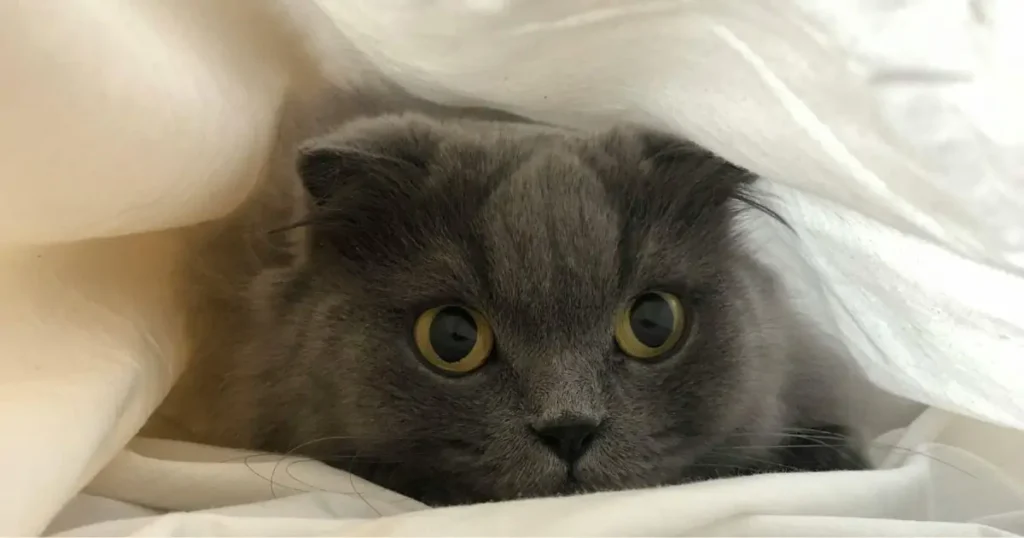
Training a Russian Blue kitten needs consistent methods and knowing their unique traits. Start with positive interactions early to shape their behavior. They usually learn to use a litter box on their own. Just make sure it’s clean and accessible.
Teaching basic commands like “sit” or “come” can strengthen your bond. Reward them with treats or affection when they listen. Keep training sessions short because they have short attention spans.
Socialization is key when training a Russian Blue kitten. Introduce them to different places, people, and pets slowly. This helps them feel less scared and more confident. Always aim for positive interactions.
It’s essential to tackle behavioral problems early. If they scratch furniture or bite during play, use toys to redirect them. Consistent training and clear rules help avoid bad habits. Here’s a summary of effective training methods:
| Training Aspect | Description | Tips |
| Litter Training | Teach your kitten to use the litter box. | Ensure the litter box is clean and accessible. |
| Basic Commands | Train your kitten on simple commands. | Use rewards and keep sessions short. |
| Socialization | Introduce your kitten to new environments and people. | Utilize gradual, positive exposure. |
| Behavior Correction | Address issues like scratching or biting. | Redirect to appropriate outlets like toys. |
Grooming Your Russian Blue Cat
Grooming a Russian Blue kitten is key to keeping their coat healthy and looking great. Brushing them regularly helps reduce shedding and prevents tangles. Brush your kitten two to three times a week with a high-quality brush made for long-haired cats.
- Nail Trimming: Trim your kitten’s nails to avoid discomfort and injury. Use cat nail clippers for a clean cut.
- Ear Cleaning: Check and clean your kitten’s ears weekly. Use a vet-approved ear cleaner to remove wax.
- Dental Care: Good dental hygiene is essential. Brush your kitten’s teeth with cat toothpaste to prevent dental disease.
Following these grooming tips will keep your Russian Blue kitten looking and feeling great. Start grooming early to help your kitten get used to it. This makes grooming more effortless for both of you over time.
| Grooming Task | Frequency | Tools Needed |
| Brushing | 2-3 times a week | Cat brush |
| Nail Trimming | Every 2-3 weeks | Cat nail clippers |
| Ear Cleaning | Weekly | Ear cleaner solution |
| Dental Care | Several times a week | Cat toothbrush and toothpaste |
Health Care for Your Russian Blue Kitten
Keeping your Russian Blue kitten healthy requires a proactive approach. Regular vet visits are key to their well-being. These visits help your vet give essential vaccinations to protect against diseases.
It’s also crucial to control parasites like fleas, ticks, and worms. These can harm your kitten’s health. Your vet can suggest the best ways to prevent these problems.
Regular check-ups are essential for early disease detection. They help your vet track your kitten’s growth and spot any breed-specific health issues.
The following table summarizes key elements of health care for Russian blue kittens:
| Health Care Aspect | Description | Veterinary Care Tips |
| Vaccinations | Initial vaccinations at 6-8 weeks, followed by boosters. | Follow your vet’s schedule for vaccinations to ensure full protection. |
| Parasite Control | Preventative treatments for fleas, ticks, and worms. | Consult your vet for suitable products and a treatment schedule. |
| Routine Check-ups | Regular vet visits to monitor health and development. | Schedule check-ups at least once a year, or as recommended. |
| Dental Care | Oral hygiene is essential for overall health. | Introduce dental care at an early age to build good habits. |
| Common Health Issues | Be aware of hereditary conditions like hypertrophic cardiomyopathy. | Regular vet visits help monitor for these common breed-related issues. |
By focusing on these healthcare practices, your Russian Blue kitten will thrive. Staying informed with vet tips helps you give your kitten the best care.
Making Your Home Cat-Friendly
Creating a cat-friendly home is key for your Russian Blue kitten’s happiness. It involves several necessary steps to keep your kitten safe and engaged. This makes your home a better place for your pet.
First, look for potential dangers. Make sure wires are not loose, cover electrical outlets, and keep toxic items away. Removing these risks is crucial for a safe space.
Then, set up cozy spots for your kitten to rest and hide. Cat trees, soft beds, and blankets are great for lounging. They also make your kitten feel secure.
It’s also essential to keep your kitten’s mind active. Offer a range of toys, especially ones that mimic hunting. Climbing structures and scratching posts are fun and good for exercise.
Below is a table summarizing effective cat-proofing strategies:
| Strategy | Description |
| Securing Hazards | Store toxic substances, cover wires, and secure loose items. |
| Cozy Spaces | Offer soft beds, cat trees, and blankets for comfort. |
| Interactive Toys | Provide a variety of toys to engage and stimulate your kitten. |
| Climbing Structures | Install shelves and scratchers to encourage natural behavior. |
By following these steps, you’ll make your home a happier place for your Russian Blue kitten. This ensures a peaceful and enjoyable living space for both of you.
Common Myths About Russian Blue Kittens
It’s important to know the truth about Russian Blue kittens. Many think they are aloof and don’t like people. But, they are very loving and enjoy being around their owners.
Some people also think their fur is hard to take care of. But their short fur is easy to manage. Just a little brushing now and then keeps it looking great.
There needs to be more clarity about what they should eat. Some think they need a special diet. But they need good quality food, just like any cat.
To clear up these myths, here’s a table with the facts:
| Myth | Fact |
| Russian Blue kittens are aloof. | They are affectionate and enjoy human interaction. |
| They require special grooming. | Their coat needs minimal maintenance. |
| They need a unique diet. | General feline nutrition guidelines suffice. |
By understanding the truth about Russian Blue kittens, you can have a better relationship with them. You’ll see their cute and loving side more clearly.
Conclusion
Welcoming a Russian Blue kitten into your home is a joy. It requires careful preparation and care. This guide has covered important topics like nutrition, grooming, and training.
These are key to keeping your kitten happy and healthy. By understanding these needs, you can create a loving home for your pet.
This guide has also shown you how to bond with your Russian Blue. Remember, every kitten is unique, making training a fun and rewarding journey.
Being responsible and committed to your pet’s health is crucial. This ensures their happiness and well-being.
Think about whether your lifestyle fits the needs of a Russian Blue kitten. Weighing these factors is essential to help you make a good choice for both you and your kitten.
Embrace the chance to make lasting memories with your new pet. It’s a beautiful opportunity!
If you’re interested in exploring more about different cat breeds, check out White Ragdoll Cat: Charming Breed Guide, Traits & Fascinating Facts.


